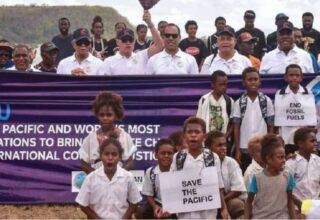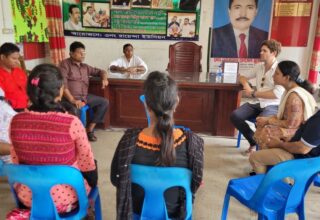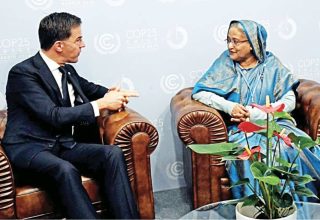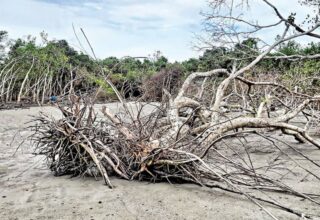(Article originally published on The Daily Star here)
The recent award of Champion of the Earth conferred upon Prime Minister Sheikh Hasina by the United Nations Environment Programme (UNEP) is a fitting recognition of her personal achievements, as well as that of the government and people of Bangladesh, in being a pioneer among nations in tackling climate change in particular. The head of UNEP Achim Steiner made special mention of the Bangladesh Climate Change Strategy and Action Plan (BCCSAP) and the fact that Bangladesh has been implementing the plan using its own funds under the Bangladesh Climate Change Trust Fund (BCTF) for the last six years.
At the same time, Bangladesh leads the world in the number of Solar Home Systems (SHS) installed (now well over three million) through a very successful model of public-private partnership of the Infrastructure Development Company (IDCOL) and its franchise model of delivering SHS to millions of customers around the country.
Bangladesh has been able to gain valuable experience by implementing both adaptation as well as mitigation actions through hundreds of projects, both by government ministries and agencies as well as by NGOs and private sector. As a result, thousands of people from all walks of life are rapidly climbing the climate change knowledge ladder and becoming well-informed not only about climate change problems but more importantly, about solutions to those problems.
It is therefore time for the government and people of Bangladesh to take things to the next phase in leading the global battle against climate change. This needs to be done at multiple levels.
Firstly we need to be playing a major role in the upcoming 21st conference of parties (COP21) of the United Nations Framework Convention on Climate Change (UNFCCC) to be held in Paris in December. The visit to Bangladesh by the foreign ministers of both France as well as Germany is a testimony of how much they value Bangladesh’s role and views in fighting climate change. We should have a logical and cogent set of arguments to put forward to achieve a legally binding agreement in Paris that bends the curve towards a long term goal, of 1.5 degrees centigrade, and not just 2 degrees, as currently agreed upon.
While the strategy of setting up our own BCCTF in order to kick-start actions to tackle climate change six years ago was the correct decision, now that many actions have been completed, it is time for Bangladesh to focus on getting more funding from global climate financing sources, such as the Green Climate Fund (GCF). It is therefore good to see that the Ministry of Finance, through its Economic Resources Division (ERD), is taking this issue seriously and will hopefully develop its capacity to enable Bangladesh to access significant amount of global funding for climate change in the near future.
Although Bangladesh has implemented hundreds of climate change actions under the BCCTF as well as under NGOs through the Climate Change Programme of Palli Karma-Sahayak Foundation (PKSF), there is still no evaluation of these projects to help develop the next generation of projects based on lessons learnt from the first generation of actions. It is therefore highly recommended to carry out a thorough and credible (by a third party) evaluation of the completed projects in order for lessons to be incorporated into future projects and actions.
It is also important that climate change is mainstreamed into all aspects of national development and not just left to the Ministry of Environment and Forests (MOEF) to tackle on its own. Thus it is good to see that the General Economics Division (GED) of the Planning Commission has tried to mainstream climate change in all sectors of the seventh five-year plan.
Finally, we can and should find ways to share lessons with other countries in the Asia-Pacific region, across continents with Africa and South America, through South-South collaboration and with the north through triangular South-South-North collaborations. Through such knowledge exchange mechanisms we can learn from others and others can learn from us.
As the climate change problem is truly a global challenge for all countries, and in fact for all humanity, it cannot be tackled in isolation by each country alone and we need to become better at joint actions across regions, continents and indeed globally, if we wish to tackle the challenge of climate change successfully.
Written by: Dr. Saleemul Huq, Director, ICCCAD








